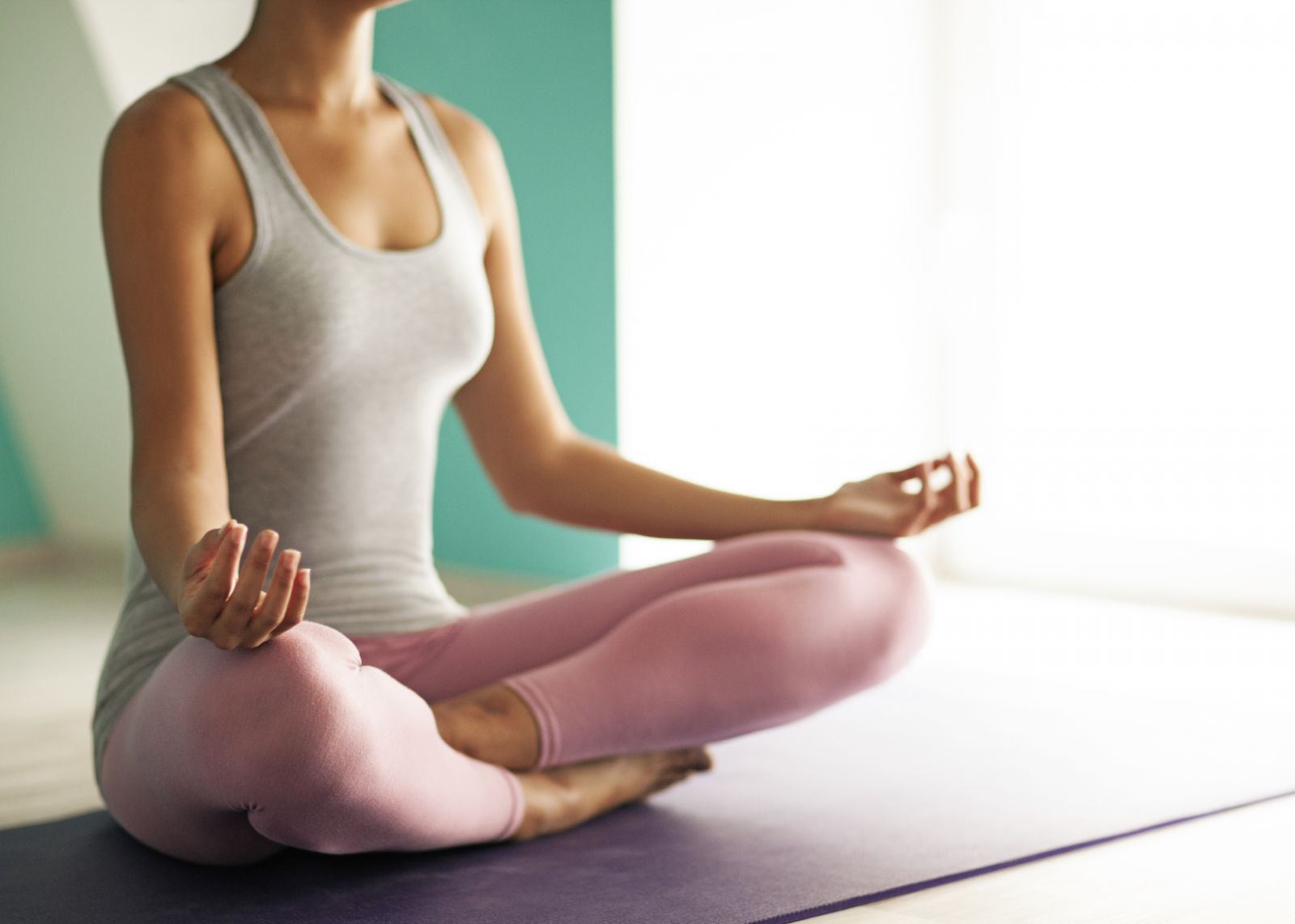
Trying to lose weight? Be careful not to lose muscle

Is your skin problem actually an autoimmune condition?

People with diabetes face higher risk of hearing loss

Antibiotic-free fixes for recurrent UTIs

Musculoskeletal syndrome of menopause: When menopause makes you ache all over

When can older women stop getting mammograms?

To lose weight, especially harmful belly fat, combine diet and exercise

Can men hold off on treating recurring prostate cancer?

The 7 types of rest and why we need them all

What are the early warning signs of cervical cancer?
Alternative & Integrative Health Archive
Articles
Treating pain with your brain
Mindfulness can be an effective adjunct to medication for chronic pain.
Image: Tetmc/ Thinkstock
For a long time, people with chronic pain have had to make a trade-off—enduring the discomfort stoically or taking medications that pose additional health risks, including dependence and addiction. But in the last few years, medicine has added another approach that has no troubling side effects: mindfulness.
"Mindfulness is basically paying attention to the present moment without judging," says Dr. Sara Lazar, a neurologist at Harvard-affiliated Massachusetts General Hospital. It is a component of many relaxation techniques, including yoga, deep breathing, tai chi, massage, reflexology, journaling, and prayer.
Medication-free options to treat your low back pain
News Briefs
Image: Moldboard/Thinkstock
A small study published in March 2016 in The Journal of the American Medical Association appears to support two nondrug options for treating chronic lower back pain. Researchers found that mindfulness-based stress reduction (MBSR), which includes yoga and mindfulness meditation (focusing on the moment), and cognitive behavioral therapy (CBT), which redirects pain-related thoughts and behaviors, were better at lowering back pain than usual care (other treatments received, if any).
Researchers randomly assigned more than 300 people (average age 49) to usual care or to eight weekly sessions of either MBSR or CBT. Six months later, researchers found that 45% of both the MBSR and CBT groups had less back pain, compared with 27% of the usual-care group, and about 60% of both MBSR and CBT participants had more back function, compared with 44% of those getting usual care.
Study shows mind-body approaches better than pain relievers for sore backs
Research We’re Watching
Cognitive behavioral therapy has been shown to be effective in treating chronic back pain, but it requires regular visits with a psychotherapist and can be expensive. A team from the University of Washington designed a study to determine whether mindfulness stress reduction—a technique that can be learned and practiced on one's own—is as effective in relieving pain and restoring function as cognitive behavioral therapy or conventional treatment with drugs and physical therapy.
The researchers enrolled 342 people ages 50 to 70—two-thirds of whom were women—who'd had back pain for an average of more than seven years. They randomly assigned the participants to one of three equal groups: one group was taught to practice mindfulness stress reduction, the second received cognitive behavioral therapy, and the third received conventional treatment as needed.
The benefits of positive thinking after a heart attack
Image: Thinkstock
A heart attack or unstable angina (sudden chest pain that happens at rest) usually requires a hospital stay. After such events—which doctors call acute coronary syndromes—about one in five people ends up back in the hospital with heart disease or dies in the following year. But there's a bright side: new research suggests that survivors with an optimistic attitude are less likely to be readmitted to the hospital with heart problems.
The study, published in the January 2016 Circulation: Cardiovascular Quality and Outcomes, included 164 people, mostly men, who were hospitalized for acute coronary syndromes. Two weeks after the event, they filled out questionnaires designed to measure their sense of optimism and gratitude.
2 points to ponder if you're considering compounded hormones
There is no evidence that so-called "bioidentical" alternatives to prescription hormones are either safe or effective.
Over the past couple of years, science has validated what many women already know: hot flashes and other symptoms of menopause can persist long after menstrual periods stop. It's also well established that estrogen—alone or combined with a progestin—is the most reliable treatment for menopausal symptoms and that, for most postmenopausal women, it is safe to take these hormones for up to five years at doses that relieve hot flashes.
But in 2002 the Women's Health Initiative reported that Prempro—an FDA-approved preparation combining synthetic estrogens with a progestin—increased the risk of cardiovascular disease and breast cancer. Since then, women have shied away from pharmaceutical companies' hormones. A third of women who use hormones for relief of menopausal symptoms are now choosing custom-mixed preparations from compounding pharmacies, according to research sponsored by the North American Menopause Society (NAMS). Women surveyed by NAMS commonly said they believed "natural" or "bioidentical" hormones from compounding pharmacies to be safer than the available FDA-approved hormones.
Is it time to give acupuncture a try for pain relief?
Image: Bigstock
For many conditions, this "alternative" treatment may be just as effective as—and may cause fewer side effects than—pain medication.
If you have chronic pain and are wondering how to avoid the potential side effects associated with long-term use of pain medications, you may want to consider an alternative—acupuncture. Since the technique was introduced in the United States in the 1970s, it has moved from alternative to mainstream medicine. Today, Harvard Medical School and other leading institutions offer courses in acupuncture for physicians, several professional societies certify acupuncturists, and two to three million Americans visit an acupuncturist every year.
Sleep and magnesium supplements
Image: Bigstock
Ask the doctor
Q. I have difficulty falling asleep, and melatonin has not worked. I want to avoid medications and I have read magnesium supplements can help. Should I try them?
A. Magnesium is an important element in many biological functions, including nerve and muscle function, so it is often proposed as a natural treatment. It has gained some acceptance as a preventive treatment for migraine headaches, but there is not strong scientific evidence for its use with insomnia.
Mindfulness: Not just for stress reduction
Image: iStock
The meditative practice is being used for everything from boosting happiness to treating high blood pressure.
Mindfulness, which trains you to focus your mind on the present moment, is more than a popular meditation technique. It's been shown to help treat depression and anxiety and improve sleep quality. And it's now being studied as a complementary therapy for cancer, stroke, multiple sclerosis, and pain. "We're seeing an exponential increase in doctors embracing mindfulness as a treatment," says Dr. Ronald Siegel, assistant professor of psychology at Harvard Medical School and faculty editor of the Harvard Special Health Report Positive Psychology.
Can calming your mind help your heart?
Many people practice meditation in hopes of staving off stress and its related health problems, including heart disease. While some studies of meditation haven't been the most scientifically rigorous, other research strongly suggests that this ancient, mind-calming practice can actually help lower blood pressure — and that it may offer other benefits for the entire cardiovascular system.
"The evidence that chronic stress is pretty toxic for the cardiovascular system is mounting," says Dr. Laura Kubzansky, a professor of social and behavior science at the Harvard T.H. Chan School of Public Health.
Is there a natural remedy for anxiety?
|
Ask the doctor
Q. I find myself getting more and more anxious, but I don't like to take medications. Is there an alternative natural treatment I can try instead?
A. Anxiety is an incredibly common problem. Although there are many FDA-approved medications that have been widely studied and proved effective, studies show that up to 43% of patients with anxiety use alternative medicine to treat it. Among alternative therapies, herbal treatments are widely used both for therapeutic purposes and for comfort.

Trying to lose weight? Be careful not to lose muscle

Is your skin problem actually an autoimmune condition?

People with diabetes face higher risk of hearing loss

Antibiotic-free fixes for recurrent UTIs

Musculoskeletal syndrome of menopause: When menopause makes you ache all over

When can older women stop getting mammograms?

To lose weight, especially harmful belly fat, combine diet and exercise

Can men hold off on treating recurring prostate cancer?

The 7 types of rest and why we need them all

What are the early warning signs of cervical cancer?
Free Healthbeat Signup
Get the latest in health news delivered to your inbox!
Sign Up











